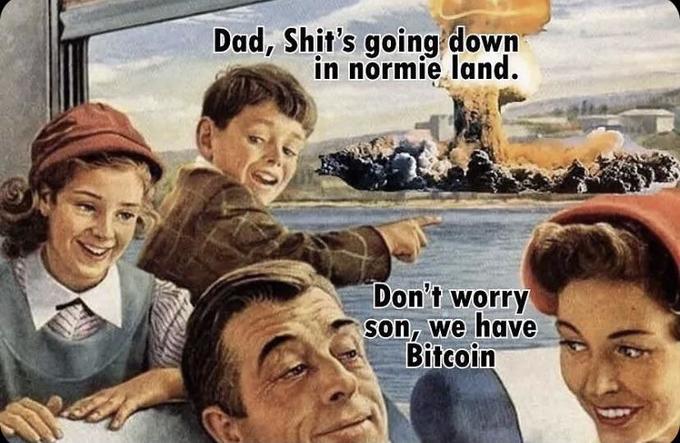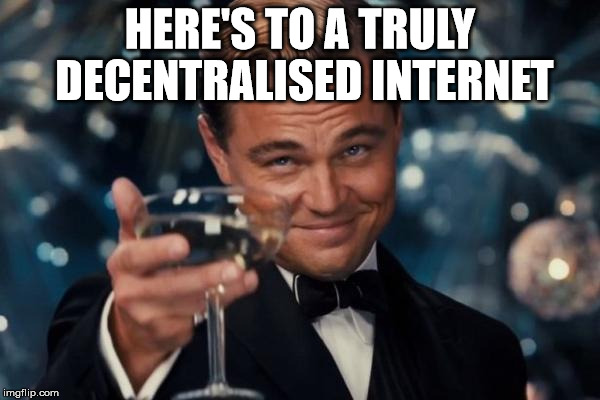Table of Contents
No, it really isn’t.
Before all of you Web3 fanatics go bored ape shit crazy or call me a Web2 dinosaur for bursting your bubble, just get your heads out of virtual reality for once and hear me out.
In my previous article, I mentioned that the so-called Web3 revolution is just another silly antic by pretentious crypto weirdos hell-bent on polluting the Internet with decentralized knick-knacks. While most of it was not written in jest, an Internet built on blockchain technology can actually be viable (just sans the ugly and expensive cartoon animals please). However, the true extent of its decentralization is still up for debate, despite the “Web3’s decentralization will cure cancer” rhetoric often used by crypto geeks.

To understand this next iteration of the Internet that the crypto industry is so desperately trying to hard sell via slightly passive-aggressive tweets, we need to first revisit the older versions of the Internet that we know and love (#tb to much simpler times where I didn’t have to decipher the brainchilds of ultra-intelligent computer maniacs).
In Web 1.0, content was consumed via static or personal sites, which means that there was no way for us to communicate or interact with content producers. In some ways, this was also a more decentralized web, because content production was entirely dependent on an individual’s ability to code. Web 2.0 – the current iteration of the Internet – is defined by centralized repositories that allow us to publish content and communicate with one another online without any coding knowledge, which means that our data is inevitably owned, managed and stored by them, hence the “centralization”. Examples include social media companies like Facebook and Twitter, search engines like Google, and e-commerce sites such as Amazon.
So what exactly would a completely “decentralized” Web 3.0 entail? Well, for one, it’ll be blissfully liberating, because we’ll finally be rid of unjust governments and their draconian laws. Big tech companies would also readily surrender our data back to us (because Edward Snowden and a bunch of anonymous crypto influencers politely asked them to do so on Twitter). Any form of monetary or fiscal policy would cease to exist, because we’ll be rightfully in charge of printing and distributing our own digital monies to create a truly democratic economy – by the people for the people (inflation would come and go on an hourly basis but that’s okay). We’ll also be able to don VR headsets to escape the harsh realities of life, and bask in pixelated rays of sunlight on a pixelated deck chair that we can very proudly say we own, while still cooped up in the safe confines of our real-life bedrooms.

What we blockheads need to know is that those are examples of what Web3 should not be – an unfenced playground where whiz kids seeking to become overnight millionaires are given a free pass to create their shitty “decentralized” games, applications, and weird-looking JPEGs, all while claiming that the rest of us have full ownership and control over this new digital economy. Unfortunately, this is the current state of the industry, and it also sounds oddly familiar because this is exactly how the centralized Web 2.0 functions – only a handful of individuals and corporations are able to create platforms for the masses.
Yes, I myself have said that blockchain technology is decentralized, and to some extent, it is. An Internet built on blockchains theoretically means that instead of centralized repositories, our data is stored on public networks that we can all access, and content can be shared and consumed directly without intermediaries. But what about the large companies and venture capital firms that are developing these networks? How much of the world’s population will ever be tech-savvy enough to develop a smart contract? The reality is that there will always be a degree of centralization and consolidation, as much as the Web3 money milkers want you to believe otherwise.
Never fully decentralized?
“It’s a journey; you will never be fully decentralized. You would need decentralized file storage, decentralized communication tools, decentralized computing and connectivity – because you can’t rely on the mobile/telecom networks because they can disable you”, said Tether co-founder William Quigley at the recent Binance Blockchain Week. By the way, everything about Tether and USDT is centralized – Tether is owned by Bitfinex, a centralized cryptocurrency exchange – another example of why the De in DeFi isn’t so De after all.

“At least 30%, maybe more, of the Ethereum nodes run on Amazon Web Services. Your chain or project might be decentralized in the sense that you’re not controlling it, but if everyone that’s managing it is using centralized systems, then it’s not”, Quigley added.
Let’s get one thing straight. Despite my recent shithousery against crypto, I still believe in the potential of a more autonomous and intelligent Internet – also because I once spent an entire afternoon arguing with a former editor two-and-a-half times my age over the fact that Web 3.0 is actually a thing and not just a Gen-Z gimmick. But the truth is that the industry still has a long way to go, despite the many potentially empty promises that the industry is currently touting, just so that they can immediately profit off our curiosity and greed.
Only time will tell if Web 3.0 will really become the decentralized Internet that is somehow paramount to the survival of the human race, but for now, I really can’t give a damn that Elon Musk is going to have ownership over my tweets.










